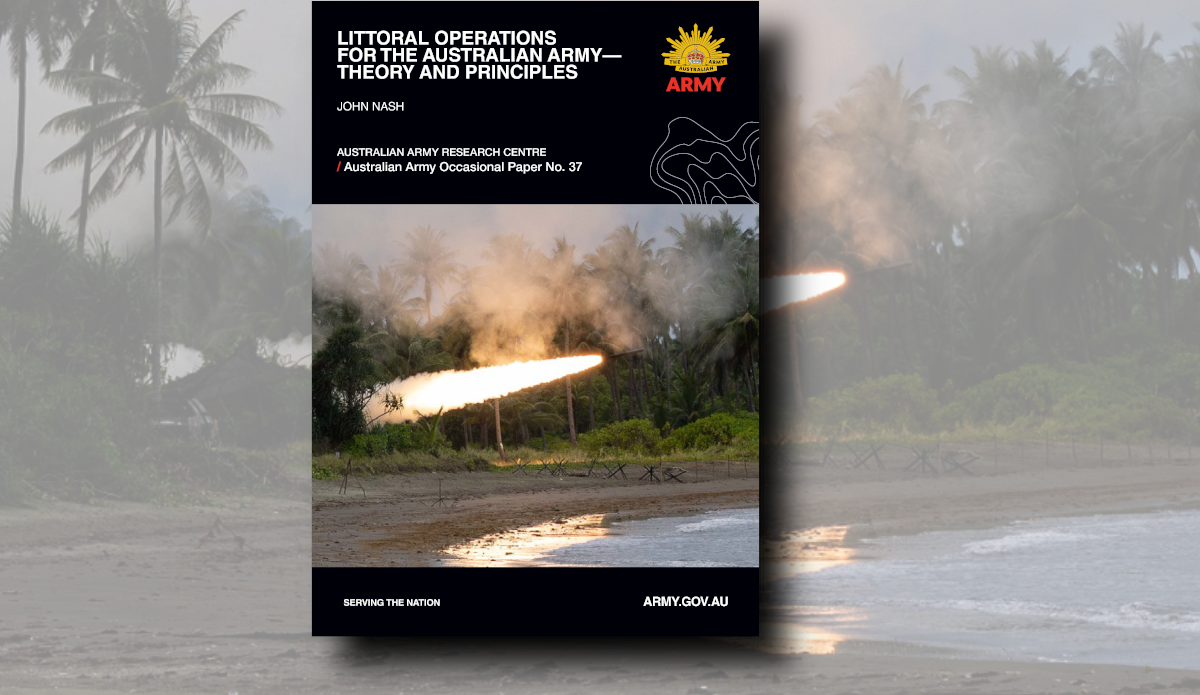Emerging Threats and Opportunities (ETOs) is a regular blog series on the Land Power Forum that collects together blogs, podcasts and articles of interest with the goal of creating discussion on the topic of land power.
US interoperability
There is a general consensus that the ‘coronavirus pandemic may soon lead to big changes in the U.S. military’. An argument to redirect military funding into domestic health resources has been met with the warning that pre-COVID19 security challenges persist. Analysts suggest the US may scale back some military missions, deploy fewer troops abroad and continue on a more isolationist trajectory. Major weapons programs may suffer, potentially derailing international cooperation on projects, and national strategy documents may be revised to focus more on invisible foes, including not only disease but also threats to the cyber and space realms.
Foreign Policy describes Malaysia’s concerns that ‘the presence of warships and vessels in the South China Sea’, and within its own exclusive economic zone (EEZ), had ‘the potential to increase tensions that in turn may result in miscalculations which may affect peace, security and stability in the region’. The Lowy Interpreter voiced similar concerns about the level of US commitment to the Indo-Pacific when the USAF announced the withdrawal of its strategic, long range B-52 aircraft from Guam, stating strategic bombers would no longer conduct longer, routine rotations from Andersen AFB. Shorter deployments would replace the routine rotations, in line with the 2018 National Defense Strategy—designed to promote operational unpredictability. B-1 aircraft based in the continental US exercised with Japan and over the South China Sea in April, however in early May, the USAF deployed four B-1 bombers and 200 personnel to Guam for an unannounced duration.
The Cyber Domain
From ASPI, an in-depth report, companion podcast and supporting article on the risks ‘weaponised deep fakes’ pose to national security and democracy. ‘A deep fake is a digital forgery created through deep learning (a subset of AI). Deep fakes can create entirely new content or manipulate existing content, including video, images, audio and text. They could be used to defame targets, impersonate or blackmail elected officials and be used in conjunction with cybercrime operations.’
Policymakers and experts continue to debate the best means of recruiting soldiers for cyber defence, examined in the US by an opinion piece in The Fifth Domain. Meanwhile congressional committees in Washington DC are being urged to force the DoD to expedite the security clearance process; research and develop clearer cyber workforce career paths and leadership roles across government; and boost funding for the CyberCorps program (a scholarship-for-service program meant as a pathway into the federal cyber workforce). Finally, The Atlantic reports that skilled citizens want to and can assist cyber defence, but the avenue to do so needs clarification (using the case study of Russian election interference).
National COVID19 response
The ASPI Strategist suggests Australia needs to train for disasters like the current COVID19 pandemic, which would not only require ADF attendance and input, but also open an opportunity for Army to advise in the design and conduct of the exercise. In a separate article, ASPI advocates for Australia and New Zealand to include the islands in the South Pacific in any ‘regional travel bubble’ should COVID19 infections remain under control, to help support economic recovery and to engender a sense of regional community.
Irregular Warfare and Terrorism
The outbreak of COVID19 is influencing the way terrorists operate in our region and beyond. The Diplomat reports COVID19 is reshaping the terrorist threat in Indonesia. In the Maldives—where Islamic State associated terrorism saw an Australian man and two others stabbed in February and an arson attack in Mahibadhoo harbour in April—there are concerns the downturn in tourism as a result of COVID19 restrictions will cause massive unemployment, leaving people vulnerable to recruitment by extremist organisations active in the country, examined here and here. This nascent trend of COVID19’s effect on terrorism is explored in detail by Counter Terrorist Trends and Analyses (CTTA), Volume 12 Issue 03, from the International Centre for Political Violence and Terrorism Research (ICPVTR), Singapore—explored in four articles. A short summary is available here.
Longer Reads
The CTC at West Point has a timely primer for policymakers, scientists, and security specialists concerned with the impact of emerging technologies on WMD development and terrorist capability, concluding that the commercialisation of emerging technologies will reduce the financial, intellectual, and material barriers required for WMD development and employment by non-state actors, particularly chemical and biological weapons, over the next five to ten years.
ASPI is releasing a series looking at Australian policy beyond COVID19. The first Volume, released on 2 May, ‘Covid-19: Australia and the world rebuild’ is a policy-focused analysis of the world we will face once the pandemic has passed, and should be considered as part of any preparation for planning. Some of the authors discuss their analysis in a video panel here.
Podcasts
Intelligence Matters – Analysis: The national security implications of COVID19 (US-focused).
An in-depth analysis of seven potential national security consequences of the COVID19 pandemic. He describes, among other factors, the possible effects of a prolonged financial crisis, of growing political instability, of escalating conflict in global hotspots, of the threat of a reconstitution of ISIS, and of the consequences of sustained tension in the US-China relationship. He also discusses the role of the U.S. in navigating an expected period of global turbulence.
ASPI – Policy, Guns & Money: COVID disinformation and Vietnam’s virus response.
Hanoi’s response to the COVID-19 pandemic, COVID-related disinformation and manipulation of social media, and the rise of patriotic trolling campaigns, the intersection of conflict and crisis and the potential impacts of large COVID-19 outbreaks in Yemen and Myanmar.
The Lowy Institute – Covidcast Episode 10:
Senator Penny Wong on Australia’s role in the post-COVID19 world.




